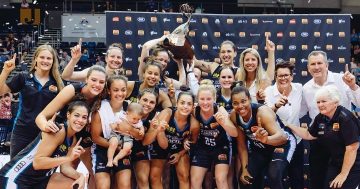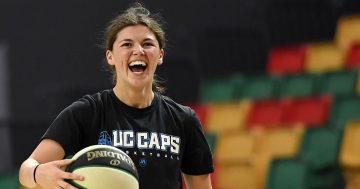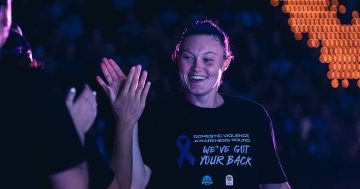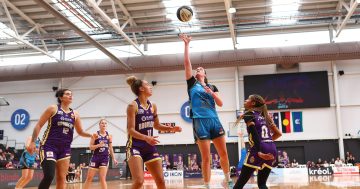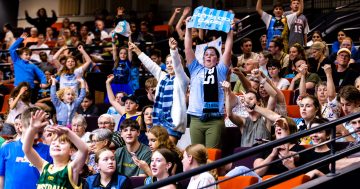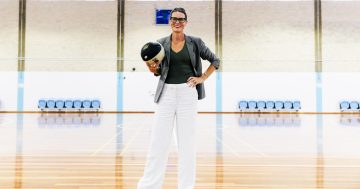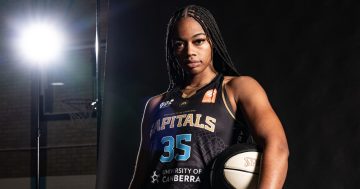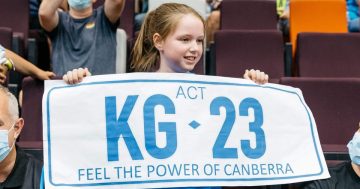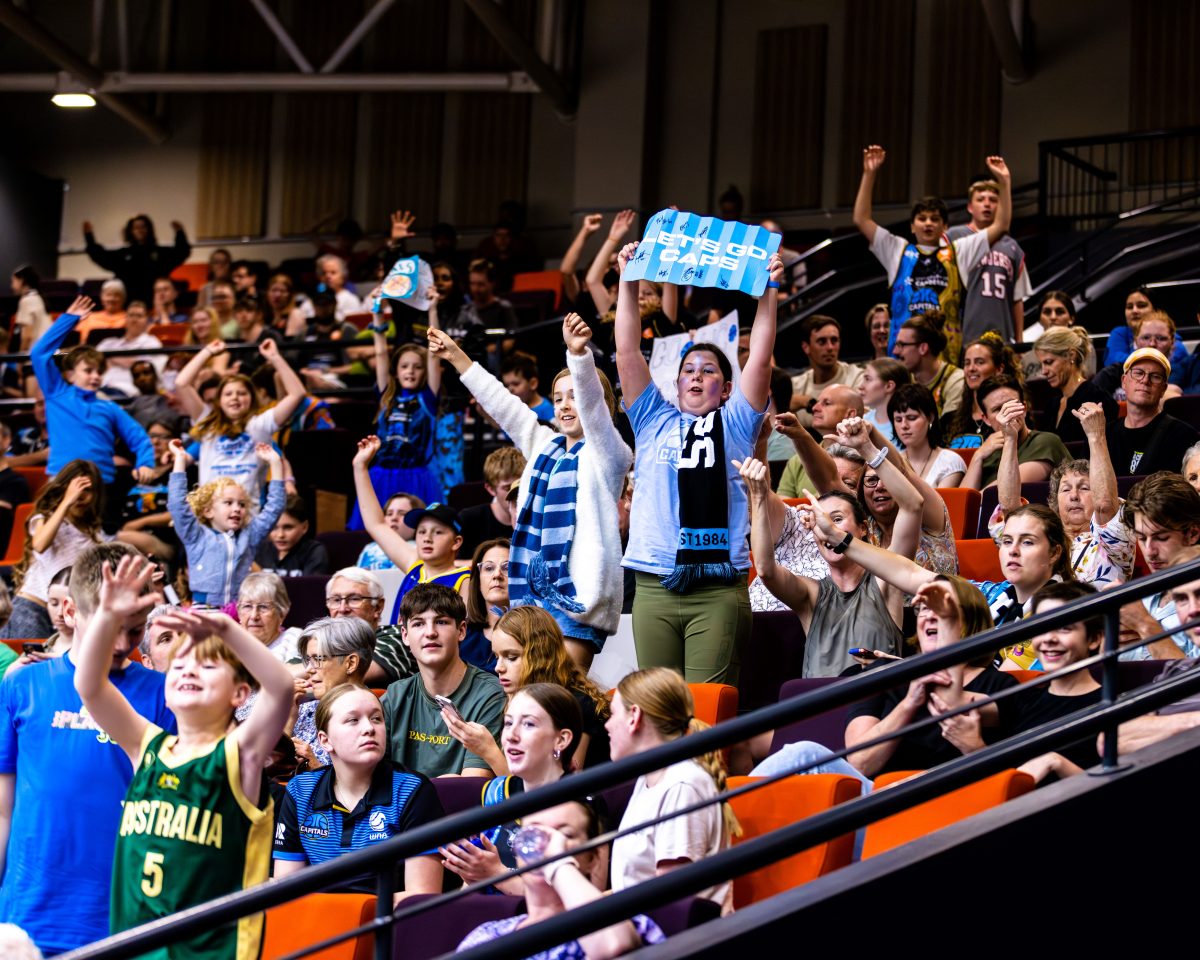
The UC Capitals regularly sell out their home games at the NCCC and Southern Cross Stadium. Photo: UC Capitals.
No home stadium and regularly sold-out matches at the National Convention Centre Canberra (NCCC) and community facilities such as Southern Cross Stadium are putting pressure on Canberra’s most successful sports team and letting down ‘Brand Canberra’
General manager Lucille Bailie says a more permanent, growth-enabling solution is long overdue.
“Particularly in the current period of massive growth across women’s sporting codes in Australia, it doesn’t cut the mustard to have to turn fans away. We need a home for Canberra’s most successful sports team,” she says.
“These are high-performance athletes that make a massive commitment to deliver world-class basketball, and when a lack of a suitable venue prevents us from presenting that experience to the public in our own backyard, we’re letting many stakeholders down. We’re letting Brand Canberra down.”
In light of the Federal Government’s recent commitment to keeping the AIS in Canberra, Ms Bailie says the “spiritual home of basketball in Canberra” would be a good next step for the Caps.
“Like many in the sporting and entertainment organisation and the broader community, we believe Canberra is the natural home for the national sporting arena. With significant investment and upgrades, it should continue as a centrepiece and world-class base for Australian athletes, coaches and officials in the nation’s capital,” she says.
“We’ve had really positive discussions with the Australian Sports Commission and the WNBL about the Caps playing all our games and any finals at the AIS arena. We’ve been told upgrades will be completed in time for the next season. This would effectively double the capacity for games compared with the NCCC, which would be sensational. It’s the outcome we need, the outcome that Canberra deserves and that this successful sports team warrants.
“I find it hard to believe that any other national sports teams would have to play at community stadiums when there is such clear demand.”
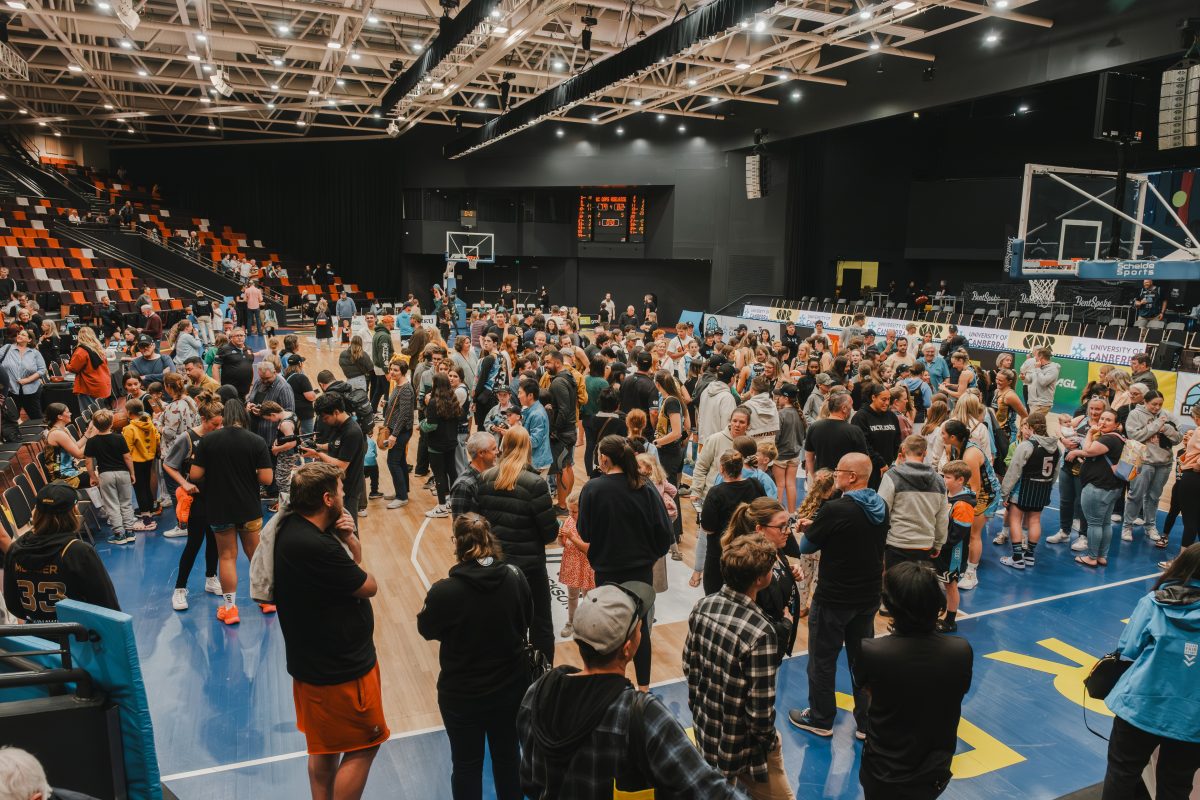
The NCCC and other community stadiums often burst at the seams when hosting the Caps’ home games. Photo: UC Capitals.
Years of attendance data spell out a clear need for a bigger and better home for the Caps, and the lack thereof is already curtailing growth, according to Ms Bailie.
“When you have a team of elite, high-performance women that represent Canberra so beautifully, winning championships and finals, that’s a lifetime bucket list-type experience,” she says.
“We have young fans stand in queue for hours after games finish to get autographs and selfies with the players they idolise … I don’t want to be the manager standing at the gate and looking at a 12-year-old girl and her family and saying, ‘Sorry, there’s no room for you. We can’t accommodate you courtside to watch, be inspired by, and spark your lifelong love of basketball through these brilliant role models’. It feels so wrong on so many levels.
“We have supreme confidence in our product and the experience our fans have consistently enjoyed. But we’re selling ourselves short, not representing our organisation or city in the best possible light and importantly, we’re really limiting the growth of this incredible product.”
The optimal solution would be a high-performance sports hub at the University of Canberra, owned and operated by the University.
Ms Bailie says the bottom line is that the success of the business model behind the Caps ultimately relies on this outcome.
“It’s not a stretch to say that fans have life-changing moments when they see these high-performance women playing in one of the toughest sporting competitions in the country,” Ms Bailie says.
“We’re patient and very reasonable. Let’s move forward and get the Caps back to the AIS and then into their own home so we never have to put up that sold-out sign-up and turn someone away.”












